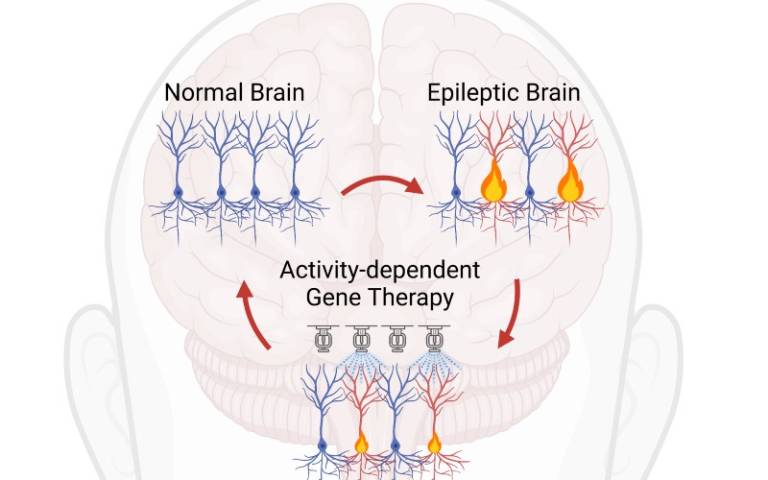Lunch Hour Lecture | Novel ways to treat the brain with gene therapy
15 June 2023, 1:00 pm–2:00 pm

This lecture explains how activity-dependent gene therapy is a promising on-demand cell-autonomous treatment for all brain circuit disorders.
This event is free.
Event Information
Open to
- All
Availability
- Yes
Cost
- Free
Organiser
-
UCL Events
Book your place
About the Lecture:
Several neurodevelopmental and neuropsychiatric circuit disorders are characterized by intermittent episodes of pathological activity. Although genetic therapies offer the ability to modulate neuronal excitability, a limiting factor is that they do not discriminate between neurons involved in circuit pathologies and ‘healthy’ surrounding/intermingled neurons. Dr Lignani will present his recent study where he described a gene therapy strategy that down-regulates the excitability of overactive neurons in closed loop and tested it in models of epilepsy as proof of principle. This novel way of thinking can be applied to many neurological diseases such as schizophrenia, autism and migraine. Activity-dependent gene therapy is a promising on-demand cell-autonomous treatment for all brain circuit disorders.
About the Speaker
Dr Gabriele Lignani
Associate Professor at UCL Queen Square Institute of Neurology
Dr Gabriele Lignani is an Associate Professor at UCL Queen Square Institute of Neurology in the Department of Clinical and Experimental Epilepsy. He received his PhD in 2012 in Experimental Neuroscience from the University of Genoa and he did his first postdoc at the Italian Institute of Technology. Then he moved to UCL for his second postdoc and was awarded a Marie-Curie individual fellowship to develop new CRISPR-based editing tools to treat epilepsy. In 2018 he started his own lab as Epilepsy Research UK Emerging Leader to further develop novel gene therapies for epilepsy. He then obtained an MRC New Investigator Award to develop new CRISPR-based technologies and obtained several other discovery and translational grants. He is board member of several committees and Associate editor for Frontiers in Gene Editing and Contributing Editor for Epilepsy Currents; he also leads the Athena Swan initiative for gender balance in his Institute. Recently he has been awarded the Harinarayan Young Scientist Award by ILAE for his research in gene therapy for epilepsy, and the Michael Prize 2023 for the best scientific contribution to progress in the field of experimental epilepsy. The focus of his lab is to develop gene therapy and editing techniques for neurological disorders, to study the role of homeostatic plasticity in epilepsy and understand the basic epileptic mechanisms.
 Close
Close

